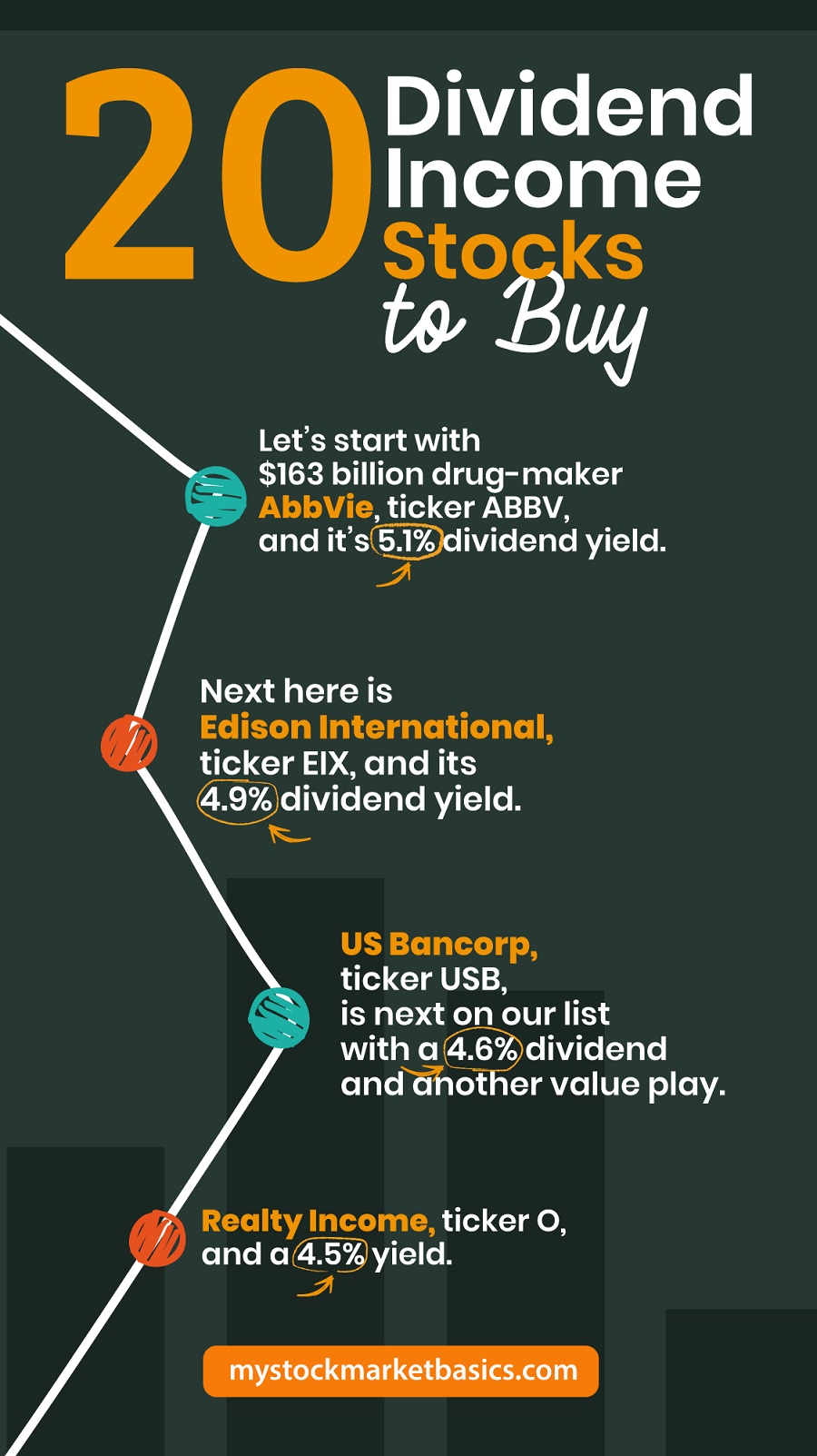
A few quality stocks are recommended for a first stock market investor. Make sure you only invest in quality stocks that appeal to your interests. Just like growing a garden, your portfolio will grow best when you take regular care of it. It is important to water your portfolio and to seed it regularly to ensure that it grows properly.
Stocks investing can yield great profits
Investors have many options, but the best strategy to make money in the stock exchange is the buy-and-hold strategy. This strategy requires holding securities for long periods and avoiding frequent selling and buying. Frequent trading can lead to losses and can prevent you from taking advantage of strong gains. In 2017, for example, the stock market returned 9.9% to fully invested investors.

This strategy has the advantage that you can enjoy your profits over time. The more time you hold stock, the greater your chances of receiving dividends. This means that even a small investment can become a significant one over time.
Stocks investing involves risks
Stocks investment comes with both potential benefits and downsides. Although stocks have historically offered higher returns than other investments over the years, they are not guaranteed to deliver future success. Stocks are a great option for long-term investors as they can build your portfolio and keep you ahead of inflation. It can also be a good investment strategy to help save for retirement.
Investing in stocks requires a long-term plan and patience. Regularly monitor your investments and make any necessary changes. The risks of investing in stocks are relatively small compared to other types of investments. If you aren't careful, however, your risk could rise.
How to choose a broker
The choice of a broker to help you get started in the market is crucial. It may be the beginning of a long-term relationship. So it's important that you choose wisely. Nerd Wallet provides a broker overview tool that will help you narrow your choices. The tool highlights key factors like account minimums, commission rates, and promotional opportunities.

When choosing a broker, it's important to consider your investment style and the type of services you'd like to receive from the broker. Most brokers offer full-service, although there are discount brokers.
FAQ
Why are marketable Securities Important?
An investment company's main goal is to generate income through investments. It does this through investing its assets in various financial instruments such bonds, stocks, and other securities. These securities are attractive because they have certain attributes that make them appealing to investors. These securities may be considered safe as they are backed fully by the faith and credit of their issuer. They pay dividends, interest or both and offer growth potential and/or tax advantages.
Marketability is the most important characteristic of any security. This refers primarily to whether the security can be traded on a stock exchange. It is not possible to buy or sell securities that are not marketable. You must obtain them through a broker who charges you a commission.
Marketable securities can be government or corporate bonds, preferred and common stocks as well as convertible debentures, convertible and ordinary debentures, unit and real estate trusts, money markets funds and exchange traded funds.
These securities are a source of higher profits for investment companies than shares or equities.
What is a bond?
A bond agreement between 2 parties that involves money changing hands in exchange for goods or service. It is also known by the term contract.
A bond is usually written on a piece of paper and signed by both sides. The document contains details such as the date, amount owed, interest rate, etc.
When there are risks involved, like a company going bankrupt or a person breaking a promise, the bond is used.
Bonds are often used together with other types of loans, such as mortgages. This means that the borrower must pay back the loan plus any interest payments.
Bonds can also help raise money for major projects, such as the construction of roads and bridges or hospitals.
When a bond matures, it becomes due. The bond owner is entitled to the principal plus any interest.
If a bond isn't paid back, the lender will lose its money.
What is a Stock Exchange?
Companies can sell shares on a stock exchange. This allows investors and others to buy shares in the company. The market decides the share price. It is often determined by how much people are willing pay for the company.
Companies can also raise capital from investors through the stock exchange. Investors are willing to invest capital in order for companies to grow. Investors buy shares in companies. Companies use their money as capital to expand and fund their businesses.
There are many kinds of shares that can be traded on a stock exchange. Some are known simply as ordinary shares. These are the most popular type of shares. Ordinary shares can be traded on the open markets. Prices of shares are determined based on supply and demande.
Preferred shares and bonds are two types of shares. When dividends are paid out, preferred shares have priority above other shares. These bonds are issued by the company and must be repaid.
How do people lose money on the stock market?
The stock market does not allow you to make money by selling high or buying low. It's a place you lose money by buying and selling high.
The stock market is for those who are willing to take chances. They may buy stocks at lower prices than they actually are and sell them at higher levels.
They want to profit from the market's ups and downs. If they aren't careful, they might lose all of their money.
Statistics
- Our focus on Main Street investors reflects the fact that American households own $38 trillion worth of equities, more than 59 percent of the U.S. equity market either directly or indirectly through mutual funds, retirement accounts, and other investments. (sec.gov)
- "If all of your money's in one stock, you could potentially lose 50% of it overnight," Moore says. (nerdwallet.com)
- US resident who opens a new IBKR Pro individual or joint account receives a 0.25% rate reduction on margin loans. (nerdwallet.com)
- For instance, an individual or entity that owns 100,000 shares of a company with one million outstanding shares would have a 10% ownership stake. (investopedia.com)
External Links
How To
How to Invest in Stock Market Online
One way to make money is by investing in stocks. There are many ways to do this, such as investing through mutual funds, exchange-traded funds (ETFs), hedge funds, etc. Your investment strategy will depend on your financial goals, risk tolerance, investment style, knowledge of the market, and overall market knowledge.
Understanding the market is key to success in the stock market. This includes understanding the different types of investments available, the risks associated with them, and the potential rewards. Once you have a clear understanding of what you want from your investment portfolio you can begin to look at the best type of investment for you.
There are three types of investments available: equity, fixed-income, and options. Equity refers to ownership shares of companies. Fixed income means debt instruments like bonds and treasury bills. Alternatives include commodities and currencies, real property, private equity and venture capital. Each category has its pros and disadvantages, so it is up to you which one is best for you.
There are two main strategies that you can use once you have decided what type of investment you want. The first strategy is "buy and hold," where you purchase some security but you don't have to sell it until you are either retired or dead. Diversification refers to buying multiple securities from different categories. For example, if you bought 10% of Apple, Microsoft, and General Motors, you would diversify into three industries. Buying several different kinds of investments gives you greater exposure to multiple sectors of the economy. You are able to shield yourself from losses in one sector by continuing to own an investment in another.
Risk management is another important factor in choosing an investment. You can control the volatility of your portfolio through risk management. You could choose a low risk fund if you're willing to take on only 1% of the risk. If you are willing and able to accept a 5%-risk, you can choose a more risky fund.
Knowing how to manage your finances is the final step in becoming an investor. Planning for the future is key to managing your money. A good plan should include your short-term, medium and long-term goals. Retirement planning is also included. You must stick to your plan. Do not let market fluctuations distract you. Stick to your plan and watch your wealth grow.